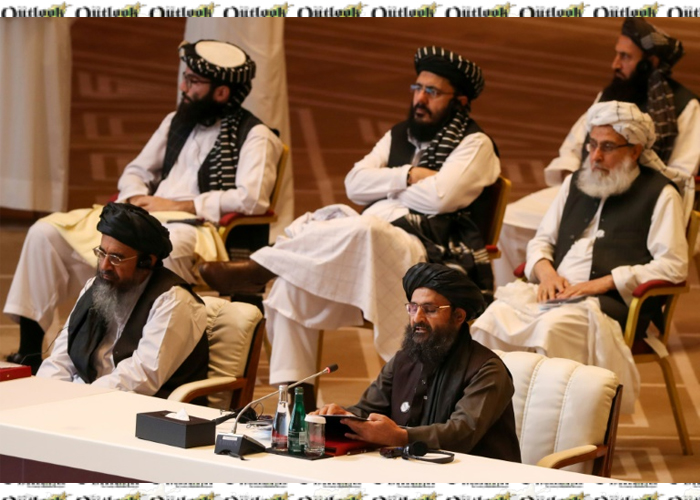The recent statements of Suhail Shaheen, a member of the Taliban negotiating team, about agreement over Afghanistan’s future political structure before declaration of ceasefire, indicates the Taliban’s lukewarm response to the national peace and stability. The Taliban persist on their own demands, disregarding those of their interlocutors. It comes as a delegation of the Afghan government and Taliban representatives met in Doha, Qatar’s capital, without reaching a hoped-for ceasefire agreement.
Shaheen also said that women will be allowed to work, go to school and participate in politics under the agreement to be agreed upon, but have to wear the headscarf. His remarks are contradictory to the practices of the Taliban fighters in areas under their control, where the Taliban do not allow girls to go to school, work outside, or dress in a way irreconcilable with the Taliban’s radical mindset or interpretation of Sharia Law. Sharzad Akbar, chairperson of Afghanistan Independent Human Rights Commission, said on a tweet, “Taliban talk about desire for peace on Western media meanwhile reports of string of extrajudicial killings by them, forced displacement, cutting communication lines, imposing repressive rules on women and girls. So far we see potential war crimes and gross violations, far from peace.” In another tweet, she said, “Living in a state of constant heartbreak. Watching the trauma of your childhood, the mass displacement, increased attacks on civilians, shrinking space for women, unfold in front of your eyes. Trying every day to do whatever you can to turn the tide, fearing it is too little.” With this in mind, the Taliban seek to show a very flexible feature in international media, but they are practicing as 1990s on the ground. In some districts, mainly where ethnic minorities live, the militant fighters shoot on the heads of civilians without an iota of mercy. In short, the Taliban talk with soft tone in international media but with the barrel of gun with the Afghan people on the ground.
In Moqor district, Ghazni province, the Taliban do not allow football players to wear on shorts and the locals to wear pants. The Taliban ordered the locals in Moqor to wear shalwar-kameez not western-style such as pants and shirts.
The Taliban, saying that military action will not succeed, are still pushing through military force. In other words, the Taliban do not practice what they preach. For instance, they have said on multiple occasions that they do not seek monopolization of power, but at the negotiating table, they persist on complete surrender, insisting that they should be allowed to decide for the future of Afghanistan by their own and through their council of clerics, which is not acceptable to the people of Afghanistan.
In the wake of their harsh practices and acts of violence and bloodshed, the Taliban could not achieve the trust of the people. The public air is filled with fear and disappointment as the Taliban are seeking to impose their warped mind on people similar to that of 1990s. As of now, all Afghans believe that the Taliban have not been moderated and they practice upon the same ideology as 1990s.
Overall, the Taliban still persist on two issues: monopolization of power and establishment of a structure based on their radical interpretation. That is to say, they seek to establish an “Islamic Emirate”, but do not call the name since regional and global players have pointed out that they would not support establishment of Islamic Emirate.
The Taliban are still seeking concessions. They did not declare ceasefire or reduce violence despite the release of more than 5,000 of their prisoners and achieving international recognition. Now they persist on their next demand to be accepted without agreeing with the demand of Afghan people and their representatives for ceasefire. Insisting on unilateral demand suggests the Taliban’s lack of intention for peace. If the Taliban seek peace, they have to reduce violence or declare ceasefire to pave the ground for a possible political settlement. But persistence of military action will simply increase the casualties of the Taliban militants, who have sustained heavy casualties with the recent surge in violence, and increase the public hatred against them. If the Taliban do not lay down their arms now, how is it possible if they do so once they take over more territory or enter the system with their guns? They have to settle the conflict through negotiations and be disarmed and disbanded before integrating into the future political structure.
The international community and regional and global stakeholders have to press the Taliban hard to stop playing a foul game and persisting on unilateral concessions, in addition to extracting many before. They have to declare ceasefire to secure the ground for a political agreement.
Home » Opinion » Taliban Show no Gesture of Goodwill or Signal for Peace
Taliban Show no Gesture of Goodwill or Signal for Peace
| Hujjatullah Zia

